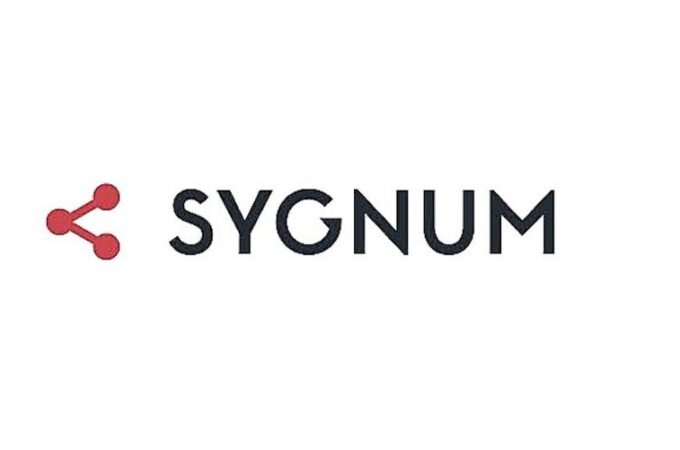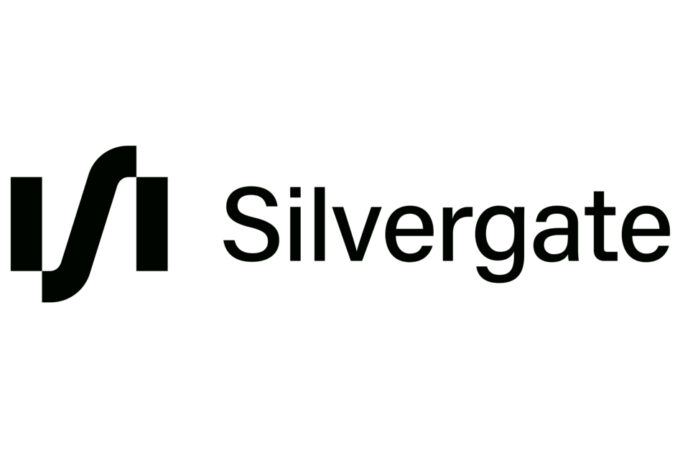
Slava Solodkiy’s Strategies for the Future of Revolut
In the article “‘Revolut for Bankrupts’, Revolut ID, and 10 more crazy ideas for Revolut,” author Slava Solodkiy shares a visionary perspective on how Revolut, led by founder Nik Storonsky, can capitalize on its strengths and explore innovative opportunities. Solodkiy proposes ideas ranging from creating a venture fund for ex-Revolut founders to capitalizing on Revolut’s backend for correspondent banking and BaaS. The concept of “Revolut ID” is highlighted as a powerful tool for digital identity, and the article suggests expanding Revolut’s reach to become a truly borderless platform. Additionally, the author explores niche product ideas, such as a lending service for co-founders and an innovative approach to lending against trading portfolios. The article concludes by praising Storonsky’s perseverance and vision, emphasizing the need for a shift in focus towards the future and new opportunities, and suggesting strategic moves for Revolut’s expansion, including a potential collaboration with Nothing and Gentle Monster.
‘Revolut for Bankrupts’, Revolut ID, and 10 more crazy ideas for Revolut
What I would do in Nik Storonsky’s place
I would suggest broadening the perspective for venture investors, shifting the focus of discussions from today’s (and often yesterday’s) problems to discussions about the future and new opportunities, and adopting a proactive rather than reactive stance.
- Venture Fund for Ex-Revolut Founders: Besides AI-driven Quantum Light Capital, I would create a venture fund specifically for startups by former Revolut founders. The market and investors are not fully aware of the real size of Revolut (and its “mafia”) overall and Nik in particular. A brief market overview, especially regarding VC investments in Revolut “graduates,” shows that Revolut has assembled such a strong team that it spawns at least 10+ new startups each year (already 67 in 5 years). They are now “leaving,” but this way, they will not be afraid to come to Storonsky and Kondrashov first to pitch if they have burned out and have an idea. This also serves as motivation for the entire Revolut team, showing that growth is possible not only within the company but also alongside it, and invests in potential new complementary services for the main business. Capitalizing on Revolut’s Team Value: Generally, it’s about how much the Revolut team “costs” (within Revolut’s valuation) — to capitalize it as a valuable asset. I believe this idea could be tested with a relatively small check: say, a $300k check for 10 startups per year, totaling $3 million, and then look at the first traction and results. HR Boost for Revolut Brand: Beyond commercial potential, this would provide a good HR boost for the Revolut brand. We gather not only talented employees but also grow entrepreneurs and support them even after leaving Revolut (which could turn any news about top managers leaving Revolut into a positive).
- Capitalizing on Revolut’s Backend: I would capitalize on the backend (payment rails and core-banking system) built by Vlad Yatsenko and spin it off into a separate correspondent banking and BaaS business. This would turn development and integration expenses into revenues (both as “paper” by capitalizing the unit, and real as a new revenue stream from other fintechs in the market). Vlad Yatsenko could become the CEO of this company. Currently, correspondent business demand is higher than for BaaS — and this focus, by the way, would be a strong booster for Revolut’s solution adoption (fintechs can’t take your correspondent relationships without BaaS, and… without the “Revolut ID” button). In this context, Revolut Bridge can be not only a provider for other digital banks (“you can launch your own Revolut with Revolut”) but also look into venture investments in digital banks that do not compete in geographical (SEA, Africa, etc), product, or niche terms (bank for the homeless, former or current prisoners, PEPs, etc.) with Revolut. To show Revolut as a market maker, to consolidate its role as a facilitator and aggregator of the market.
- Digital Identity and Re-usable KYC: The most underrated and promising part of Revolut, in my opinion, is the “Revolut ID.” With more than 40 million fully KYC-ed users this project would instantly leave Worldcoin and other 79 players in the digital identity market behind. Here’s the simple logic — aren’t you tired of filling out the same data every time? When will users of credit services “vote” against current providers and for not being tortured with the same questions and answers! As my friend and mentor David Birch recently wrote, “Every time I interact with a new financial institution, accountant, lawyer, or business partner I find myself having to email scans of utility bills, pictures of passports, and PDFs of corporate letterhead in order to get anything done. This is an incredible friction in the economy, a waste of time and money for all concerned.” Birch believes that (digital) banks are the closest to realizing the concept of borderless re-usable digital identity compared to other industries. (And where there’s digital identity, there are new govtech services, and then ideas like Balaji’s metastates… that’s how new states were created!)
- (Really) Borderless Revolut: Directly linked to the development of Revolut ID. Currently, despite covering a large number of markets, you cannot open an account from one country of Revolut presence to another. And if you are not from a Revolut presence country at all, it is impossible. Although such banking is absolutely possible (and there is huge demand for it) — it is in this niche that I built my ArivalBank.com. If we dream, then Revolut ID here could become like the second Nansen Passport.
Here are 6 more product niches that I would explore from Revolut’s perspective :
- A Lender for Founders from Founders: I would look into creating a lending service specifically for co-founders or employees with shares or stock options from a B+ round tech startup. In Revolut alone, there are several hundred employees with options — imagine how many thousands of such clients are in the market facing the challenge: wanting to buy a home or a car, but banks can’t use your stocks or options in the wealth and collateral analysis, and your salary isn’t enough for what you really want. I would also consider financing against Revolut employees’ options (for mortgages and other large expenses) — similar to the initial idea of Compound — and then expand this service to employees of other major tech companies with option programs. I am sure, Revolut employees constantly bombard Nik with questions about how to partially cash out (and he has enough to think about already) — here, they can build a separate funnel and service (for internal and external usage).
- ‘Revolut for HNWIs’: Lending against trading positions — quick consumer, auto, and mortgage loans against the value of your trading portfolio (at any popular online broker). Imagine having an account on Revolut Trading, Robinhood, eToro, Webull, Moomoo, etc. (Coinbase, Binance, Kraken too?) — you need a quick loan for a car or mortgage, but you believe in your trading position and don’t want to close it, and don’t want to deal with extra paperwork for a classic loan scenario (and banks/creditors don’t consider your brokerage accounts as part of your financial state/income — only salary and bank account). As a credit solution: you link your brokerage accounts through APIs/Plaid/etc. to your account with Revolut, and they immediately open an account for you and show how much they are ready to lend you instantly against stocks. In the future, it might be possible to lend against the collateral of crypto and tokens, and strive to ‘capture’ more cash flows of the retail investor, become their main account, diversify their assets (real estate, art\wine, equity crowdfunding services like Crowdcube, and other assets — all in one app): to become a digital private banking app like ‘Revolut for HNWIs’.
- Refinancing Loans for Financial Problems: There’s still no convenient online lending service for refinancing loans, especially when facing financial problems. You or your company might face the inability to repay a loan on time for various reasons — and this says nothing about you as borrowers wanting to be conscientious and repay the debt on time! Without feeling ashamed or fearing retaliation — how do you communicate this to the creditor? How about products that consolidate loans, lower the monthly rate, extend the term, and provide credit holidays for a month or two?
- “Revolut for” Bankrupts: Everyone prefers to tread the beaten path — and fight for the same audience: borrowers with a high credit score. In the United States, there were 418,724 bankruptcy filings during the twelve-month period ending June 30, 2023, with 15,724 being business filings and 403,000 being non-business filings. For instance, in 2019, there were 777,940 filings, which is almost the combined total of filings for 2021 and 2022. In the United Kingdom, in December 2023, there were 6,584 individual insolvencies. But what about online services that help you properly file for personal (or business) bankruptcy? What about a bank for people with a poor credit history — how to help them fix it?
- Like “Brex for Remote Workers and Digital Nomads”: Due to COVID and the development of remote work services, a new fast-growing segment has emerged in the lending market: the audience of remote workers, employed in various companies through platforms like Deel and Papaya. Only Deel “employs” more than 60,000 employees in some countries for more than 5,000 companies from other countries. Who will credit them? Their average salary starts from $5,000 per month (mainly this is outstaffing of programmers and engineers). And they face such a challenge: if you need a loan or credit card — for banks and online lenders, it is quite new and difficult to understand this type of employment, especially if you hold a passport of one country, live in another, and your employer is in a third: no chance to be approved. How about a solution: sign up with your Deel\Papaya\etc. login — link with your profile, and Revolut “withdraws” your work contract, size of salary, etc., and provides you a pre-approved cross-border loan or credit card.
- And My Old Crazy Idea — Consider Buying WeWork: This would be a logical move — Revolut goes beyond banking, providing an O2O (online to offline) experience. Both companies share a similar philosophy: borderless banking — borderless space. Why not open a company and an account immediately when you create a profile in WeWork? Or use a Revolut card to enter WeWork when needed, work from there, or meet friends? You could sell Revolut cards with accounts in other countries (not advertised) where WeWork is present but Revolut is not in the market. O2O experience is a powerful theme: materializing the brand, creating a point of “ideal experience,” a learning spot. Leaders in these experiments, where offline is not a point of sale but an experience and brand touchpoint, include Tesla showrooms. But e-commerce players like Etsy, Shopify, and Alibaba have also opened flagship showrooms offline.
Do you know the book “Blockbuster Strategy”? In it, the head of a film studio shares that every time he makes a very expensive movie, costing around $200 million, one or more shareholders inevitably come to him, fretting about the risk and questioning how he plans to recoup the investment. His response over the years has been consistent: instead of justifying, he announces that he has decided to spend an additional $100 million on advertising for the film. I believe it’s time to shift the focus of discussions from current problems to the discussion of the future and new opportunities. Revolut goes beyond Revolut, and Nik is getting bigger than Revolut: who is he, what is his next version, what is he thinking, where is he heading? It seems to me that soon, just like with Tesla and Musk, everyone will eventually question (about Revolut and Nik): is it the value of Tesla in Musk, or the value of Musk’s brand and vision in Tesla? This isn’t about populism — I see over these 10 years, how from an ordinary fintech startup and its founder, Nik challenges the market (and himself) to push the boundaries of what’s permissible, expanding the imagination of the public (and shareholders, employees, other startups, and their founders, who come out with pitches like “we are like Revolut in …”).
I believe that one of the most underrated companies right now is Revolut.And it’s not just about scale and impact on the market, but also the effect it has on a whole generation of minds and young entrepreneurs, and the undervaluation of the talent of its modest founder Nik Storonsky. If he were to “list himself” and “his shares” on the stock market now — I would be the first to buy them at any price, while for now investors can play out the investment idea of buying Revolut shares on the secondary market.
(If I were a venture investor) I would use the momentum effect: scouring the market and lining up in search of opportunities to buy shares from Revolut’s employees and current shareholders on the secondary market, who got scared of negative news — since such an opportunity to quickly make money on the ‘emotional discount’ has miraculously arisen. I would also closely follow Storonsky’s venture fund Quantum Light Capital, managed by Ilya Kondrashov. If you have at least $5 million — I would make such a ‘relationship investment’ in Storonsky’s fund, to ‘buy myself access’ to communication with him and his team.
Storonsky is absolutely right in saying that the world of venture capital, based on relationships and closed circles of contacts, is outdated and awaits change. “Based on my entrepreneurial experience over the past eight years, I’ve found the product of venture capitalists quite annoying,” says Storonsky. “In bad times, no one wants to invest, in good times everyone wants to invest — so the lessons were that venture capitalists are quite unstable, and there is an element of herd mentality.”
David and Daniel Liberman (ex-Snap) along with Sam Lessin (ex-Facebook) have been talking a lot lately and heating up the venture market towards the investment idea — to invest not in startups, but in founders as companies. In this context, Storonsky no longer looks like a one-day entrepreneur who accidentally ended up with the right idea in the right place and at the right time. His path doesn’t look easy and like a vertical takeoff — his strength is in consistency and the ability to run long distances, as well as quickly learn and adapt in the market, occupying new and new niches that no one expected from him.
Despite all the difficulties, it is precisely the perseverance of Storonsky (and the constant new releases of Revolut) that eventually leads to the latest successes and brings hope to investors who have survived the turbulent period with the company in 2023. When Storonsky says, “we’re not going to slow down, we’re aiming to increase this number tenfold, moving towards 350 million customers and beyond.” — I believe him and that’s where the big upside is now to scoop up Revolut shares on the secondary market at a discount, to make your 10x.
About the banking license and the USA:
Revolut and other players haven’t succeeded (yet) in anything with the banking license in the USA. I have some experience here — I obtained a license from scratch for my ArivalBank.com in 2.5 years (though as the saying goes: the more I know, the more I realize how little I know). In the context of conquering the uncharted American market — I would look at some small regional bank in the USA, which has at least once provided correspondent services to someone, which is either being sold entirely for $30–50 million or is raising additional capital of $5–10 million. (By the way, there are many small banks in America that are public and trade on the stock exchange!)
Such banks have been trading at a significant discount for the last year or two, often in the range of 0.5–0.8 of their own capital. In the context of intensifying competition, the banking crisis in the USA, regulatory changes in correspondent business (AMLA and KYCC problem) — many of them are raising money for the “re-equipment” of the bank, to work with digibanks and fintechs (they currently can’t fully digest them — it requires updating the core-banking system, new compliance software, and additional people).
This could be a good “relationship investment”: by intervening in the process of “re-equipment,” the bank could be “tuned” in advance for Revolut and its needs, and then migrate to this “own” bank. Plus, you can see how it goes with their management and other shareholders — and if okay, then it’s quite quick to buy the bank entirely or at least control in it. In the end, you have your own license — faster and easier, when it comes itself to meet you, rather than breaking through the “window to America” with your own hands.
I would think about how Revolut can achieve goals not by the current “straightforward” path as a fully owned license (this move is 100% logical, but regulators often are not quite about logic, but about following rules):
- partial (5%, 10%, 25%, 49%) absorption of some small bank — and Revolut working with it in the BaaS model (as with MCB nowadays).
- Moreover, I would recommend buying this bank, partially or fully, personally by Nik or some absolutely new, not yet associated (with Revolut) structure. I understand why here the size and fame of Revolut play against it in communication with regulators in the USA, and small and inconspicuous players like me slip below the radars — because regulators have to take responsibility for the entire Revolut altogether: not just specifically the American subsidiary, but all shareholders from the time of founding, all clients in all countries… I understand that this is not fair to Nik and Revolut — but I understand the pain of the regulator. Having solved the problem of a “friendly bank” in the USA — its integration into the corporate structure of Revolut I would solve as the second (or third) step.
- launch of necessary new products, which Revolut planned on American or British licenses — on their banking license in Lithuania, or in any other country (yes, I know about various restrictions on advertising such products from one country to another — but in practice, in my and others’ experience, I’ve seen that risks here can be properly managed)
- generally, maybe I, in Nik’s place, would simplify and speed up the question — and just write in my LinkedIn that if you are selling a bank partially or fully in the USA (UK or another country), then write to Nikabout the price and other conditions. Remember how Bezos chose his city for a new headquarters recently? He didn’t look for the location himself and didn’t engage in talks-negotiations — on the contrary, he posted his plans: we are building such an object and if your city wants to compete for us, then write to us. And it worked, cities really fought for him, not he with them! Not only the UK or USA, but also the presence of a good bank at a good price in any other country will be a bridgehead for Revolut to enter these countries. The list of sale offers will be a roadmap for Revolut’s expansion. I would suggest Nik go on the counterattack here: show prospects, deferred demand, potential…
O2O, as I wrote above, is a very powerful and underrated trend, and Revolut can play its role in it (and not only through WeWork)
I don’t know if you’ve used the Nothing phone, a British brand — I’m a big fan of theirs. In my opinion, it would be cool to make a collaboration (not at the level of a pre-installed application — but at the level of an operating launcher directly) Nothing x Revolut: where you enter the phone through Revolut ID, the card is immediately linked, and in the box lies a dongle for accepting card payments…
I would also build in more advanced biometrics than on regular smartphones — to make it an analog of Worldcoin’s ORB: so that people could become agents of Revolut for verifying themselves and other people for Revolut ID. Where Revolut has coverage — there they open (or link) an account, and where (not yet) there, they put a lightweight Revolut Light crypto wallet and do KYC (for a future account) through Revolut ID, when the bank comes to them — creating a living waiting list by doing so.
For several years I was a fan of Google’s Pixel, but their last 2–3 generations of models are really a genre crisis, stagnation, and Carl Pei — it’s just fresh oxygen in Android smartphones and gadget industrial design. if you have time — go to their first concept store in Soho: they are more youthful, advanced, daring, edgy, experimenting, not afraid to make mistakes… Their advertising is always straight art — from their communication in terms of aesthetics and energy, it’s impossible not to become a fan, it’s more like a fashion brand.
Generally, if you’ve been to Seoul in the concept stores of Gentle Monster (I think in terms of retail and communications these are currently the most avant-garde guys in the world, just gods, like Jobs and Ive once felt everything), then this is very similar to Nothing. If Revolut, Nothing, and Gentle Monster join together, it would be just a blast, they would have the largest army of fans and their own community. Revolut has now grown in terms of design, especially recently, but I am sure that it can become an iconic brand — they are building something so mesmerizing, changing everything in the world, and their voice must break through in design as well.





